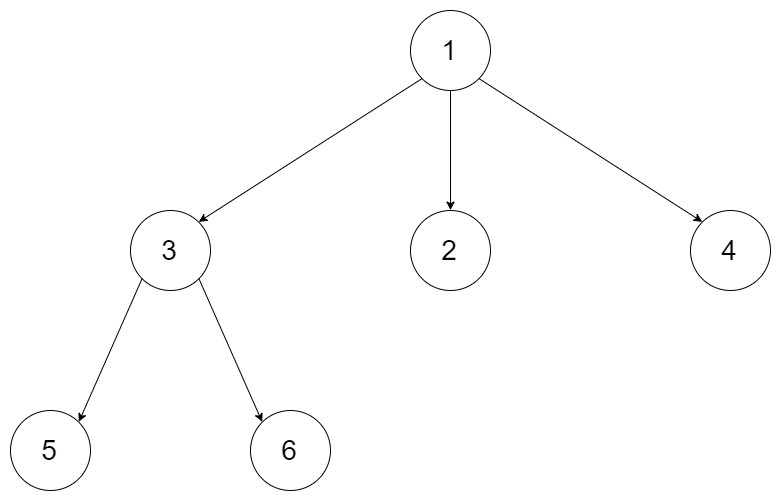765. Serialize and Deserialize N-ary Tree
Difficulty: Hard
Topics: Tree
Similar Questions:
Problem:
Serialization is the process of converting a data structure or object into a sequence of bits so that it can be stored in a file or memory buffer, or transmitted across a network connection link to be reconstructed later in the same or another computer environment.
Design an algorithm to serialize and deserialize an N-ary tree. An N-ary tree is a rooted tree in which each node has no more than N children. There is no restriction on how your serialization/deserialization algorithm should work. You just need to ensure that an N-ary tree can be serialized to a string and this string can be deserialized to the original tree structure.
For example, you may serialize the following 3-ary tree

as [1 [3[5 6] 2 4]]. You do not necessarily need to follow this format, so please be creative and come up with different approaches yourself.
Note:
Nis in the range of[1, 1000]- Do not use class member/global/static variables to store states. Your serialize and deserialize algorithms should be stateless.
Solutions:
/*
// Definition for a Node.
class Node {
public:
int val = NULL;
vector<Node*> children;
Node() {}
Node(int _val, vector<Node*> _children) {
val = _val;
children = _children;
}
};
*/
class Codec {
public:
// Encodes a tree to a single string.
string serialize(Node* root) {
string buf;
serializeHelper(root, buf);
return buf;
}
// Decodes your encoded data to tree.
Node* deserialize(string data) {
int pos = 0;
return deserializeHelper(data, pos);
}
private:
Node* deserializeHelper(const string& buf, int& pos) {
bool notNull = readBool(buf, pos);
if (!notNull) return nullptr;
int val = readInt(buf, pos);
int childrenCount = readInt(buf, pos);
vector<Node*> children;
for (int i = 0; i < childrenCount; ++i) {
children.push_back(deserializeHelper(buf, pos));
}
Node* node = new Node(val, children);
return node;
}
void serializeHelper(Node* root, string& buf) {
if (root == nullptr) {
writeBool(buf, false);
return;
}
writeBool(buf, true);
writeInt(buf, root->val);
int childrenCount = root->children.size();
writeInt(buf, childrenCount);
for (int i = 0; i < root->children.size(); ++i) {
serializeHelper(root->children[i], buf);
}
}
void writeBool(string& buf, bool val) {
buf.append(val ? "1000" : "0000"); // alignment!!!!
}
bool readBool(const string& str, int& pos) {
char c = str[pos];
pos += 4;
return c == '1';
}
void writeInt(string& str, int& val) {
const char* valStr = reinterpret_cast<const char*> (&val);
str.append(valStr, sizeof(val));
}
int readInt(const string& str, int& pos) {
int val = *((reinterpret_cast<const int*> (str.data() + pos)));
pos += sizeof(int);
return val;
}
};
// Your Codec object will be instantiated and called as such:
// Codec codec;
// codec.deserialize(codec.serialize(root));